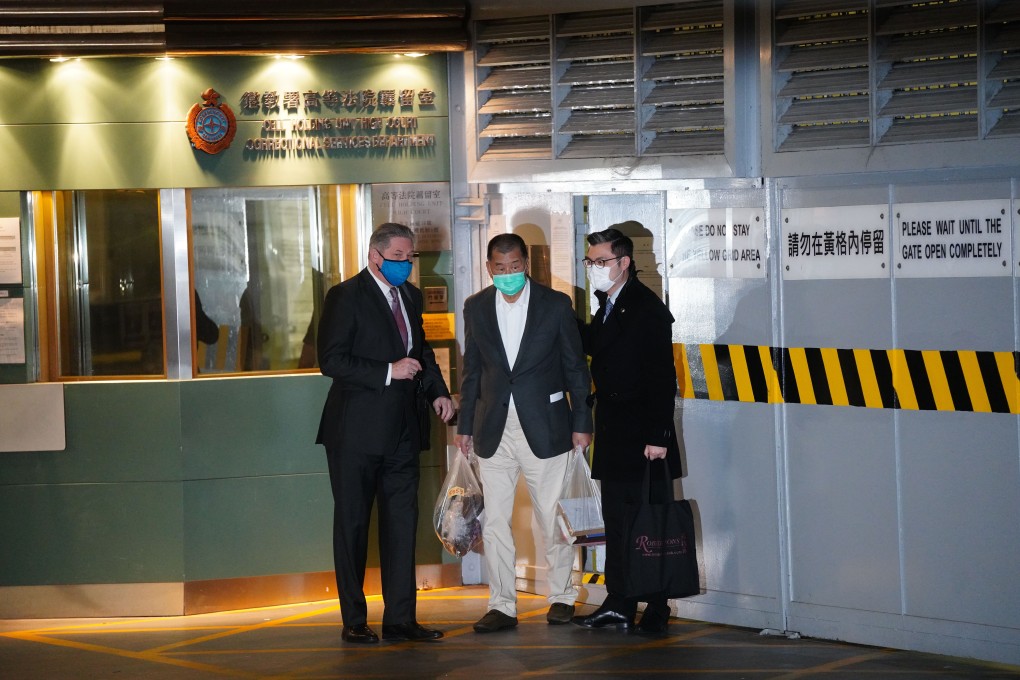Advertisement
National security law: Hong Kong media tycoon Jimmy Lai heads home after prosecutors lose bid to overturn HK$10 million bail granted by judge
- The 73-year-old media tycoon had been held in jail for 20 days, charged with collusion with foreign forces and fraud
- He left the High Court in Admiralty with his lawyers at 10.50pm after completing bail procedures
Reading Time:3 minutes
Why you can trust SCMP

Hong Kong media tycoon Jimmy Lai Chee-ying can spend Christmas at home, after prosecutors failed in their bid to overturn the HK$10 million (US$1.3 million) bail granted to him by a judge, who placed him under house arrest on Wednesday.
In a grey jacket and white shirt and trousers, the 73-year-old left the High Court with his lawyers at 10.50pm after bail procedures were completed, putting an end to a four-hour wait by dozens of journalists who were outside.
He waved to the press before taking the front passenger seat of his private car, as police temporarily cordoned off a carriageway to allow his departure.
Advertisement
The founder of Next Digital, which owns the Apple Daily newspaper, had spent the past 20 days in custody after first being charged with fraud, then with collusion under the Beijing-imposed national security law.

01:03
Hong Kong media tycoon Jimmy Lai freed on bail
Hong Kong media tycoon Jimmy Lai freed on bail
He was ordered to observe a string of “tailor-made” terms for his temporary release, after he became the first person charged under the new legislation to win court bail.
Advertisement
Advertisement
Select Voice
Choose your listening speed
Get through articles 2x faster
1.25x
250 WPM
Slow
Average
Fast
1.25x